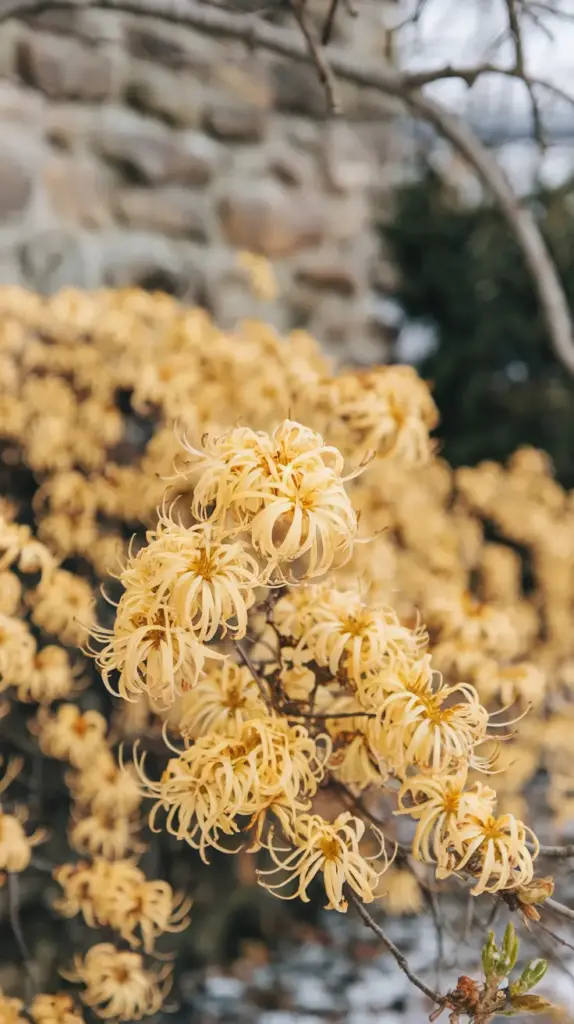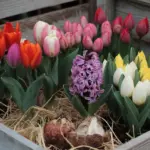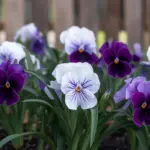9. Witch Hazel (Hamamelis)

I’ll never forget the first time I discovered witch hazel in my winter garden. It was a gloomy January morning when I spotted these peculiar, spidery blooms dancing in the winter breeze. Talk about a game-changer for the winter landscape!
Why Witch Hazel is a Winter Wonder
Let me tell you, Hamamelis is truly one of nature’s most fascinating plants. While other shrubs are still sleeping, this beauty puts on quite a show. The flowers look like tiny yellow or orange ribbons, almost as if someone decorated your garden with miniature streamers.
I learned the hard way that placement is everything with witch hazel. My first specimen was planted in a forgotten corner of the yard, and I missed half its blooming season because I couldn’t see it from my windows. Now I always recommend placing it where you can enjoy those fragrant blooms from indoors too.
Growing and Care Tips
After 15 years of growing various witch hazel varieties, I’ve picked up some tricks. These plants are pretty low-maintenance, but there are a few things to keep in mind:
- Soil preparation is crucial – they love well-draining, slightly acidic soil
- Give them enough space – they can reach 12-15 feet tall and wide
- Plant them in fall for best results
- Provide partial to full sun for optimal blooming
- Be patient – they can take a few years to establish
Multi-Season Interest
Here’s something cool about witch hazel that most folks don’t realize – it’s not just a one-season wonder. While those winter blooms are the main attraction, the bark provides year-round interest with its mottled gray pattern. In fall, the leaves turn into a spectacular show of gold and orange.
My Favorite Varieties
After experimenting with several cultivars, I’ve found some real winners:
- Hamamelis x intermedia ‘Arnold Promise’ – bright yellow flowers with amazing fragrance
- Hamamelis vernalis – perfect for smaller gardens
- ‘Jelena’ – stunning copper-orange blooms that seem to glow in winter light
Common Problems and Solutions
Trust me, I’ve made my share of mistakes! The biggest issue I see is improper watering. While witch hazel is generally hardy, young plants need consistent moisture. I lost my first plant to drought stress because I assumed it was as tough as it looked. Now I maintain a good mulch layer to retain moisture and suppress weeds.
Ready to discover another early-blooming beauty that will add charm to your winter garden? Our next plant, Pulmonaria (Lungwort), is a shade-loving gem that offers not just beautiful flowers but also stunning foliage. Click the next button below to learn about this versatile ground cover that will brighten up those dark corners of your garden!









GIPHY App Key not set. Please check settings